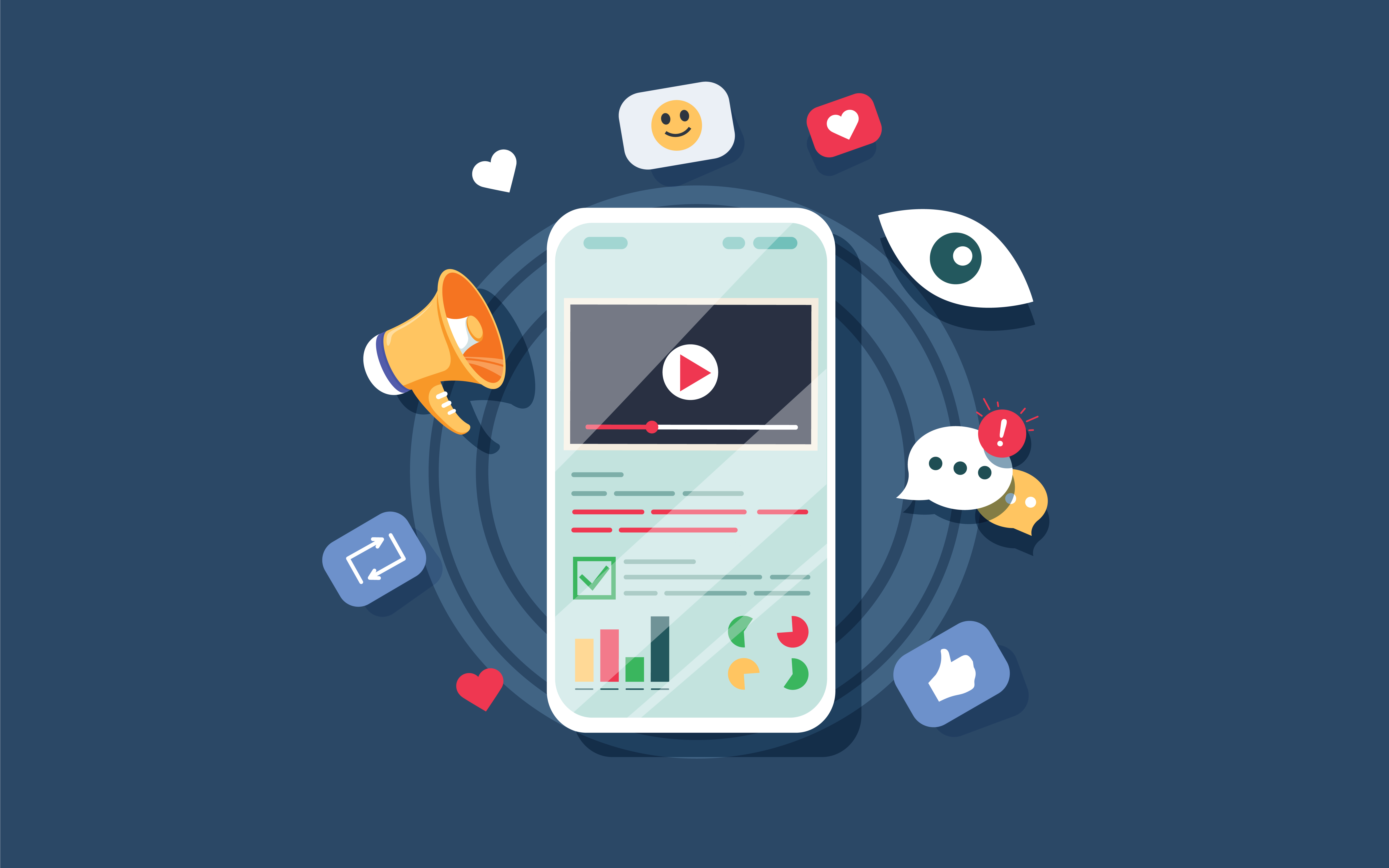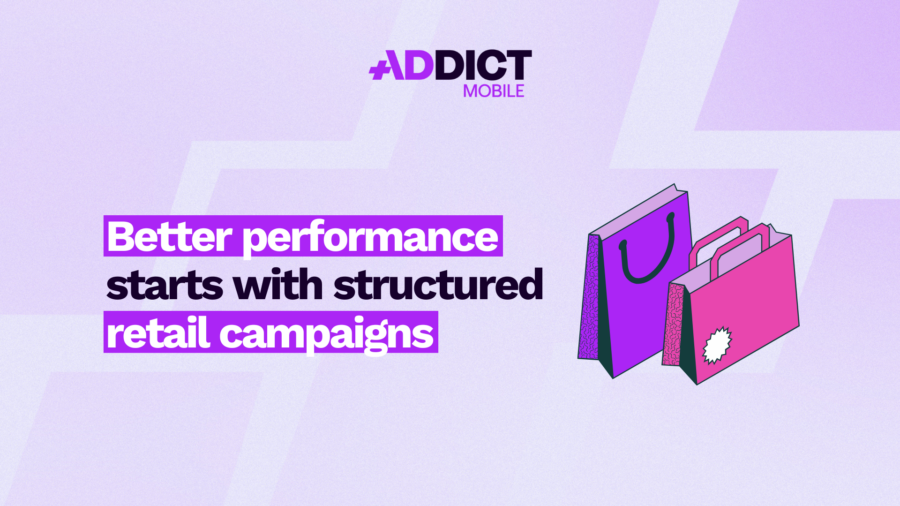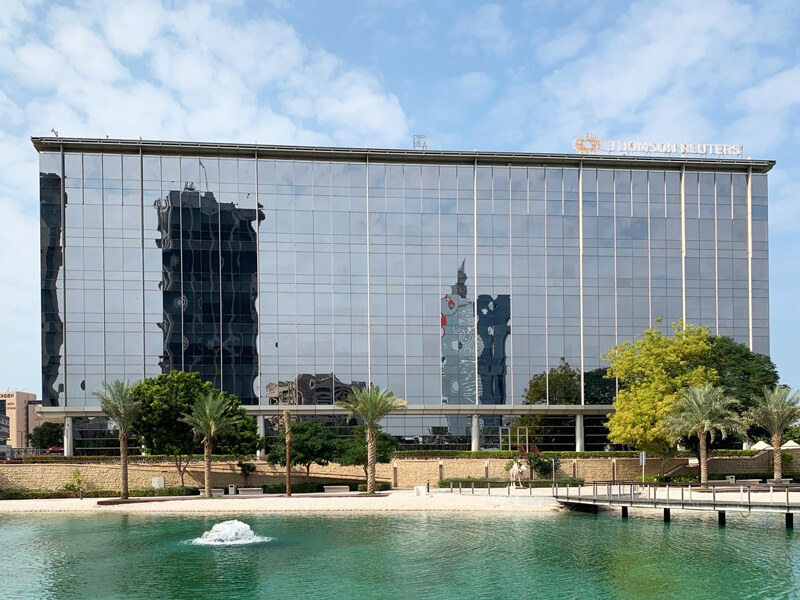Key advice to create killer visuals to optimize your acquisition campaigns

In a world where an image is worth a thousand words, creatives are key elements in differentiating brands. Especially in the field of mobile acquisition. They are actually the entry point for marketing campaigns: they encourage people to download an application or visit a website.
While branding helps you develop a brand’s reputation in its ecosystem and tell a story to its customers, mobile acquisition meets another need. It is all about recruiting new users to generate conversions to an application or site. However, in the sector of creatives, many people still confuse branding and acquisition.
This is evidenced by the many A/B tests carried out every day by Addict Mobile for our customers’ campaigns. They confirm the high importance of visuals that move away from aspirational communication as they are generally more effective.
There are now many sources to broadcast your acquisition campaigns and they all meet different objectives: Facebook, Google, Snapchat, Pinterest, display and video management, Twitter… However, advertisers often tend to create visuals dedicated to Facebook first – the main source in the mobile application market – and duplicate them on other platforms. Even if a winning concept is likely to work on other platforms, there is no guarantee that this will always be the case. Indeed, each source has its own specific features, so it is important to adapt to each of them if we want to maximize conversion rates and ultimately ROI.
Given the variety of types of use on different social networks and Ad-networks (recommended formats, maximum duration, prohibitions, etc.), we have decided to write this comprehensive article to help you understand the ins and outs of this question and create killer creatives for your acquisition campaigns.
Specific features per source: Facebook
On Facebook, best practices recommend exploiting the several locations available on the platform. Namely: news feed, story, messenger, audience network, in-stream… In order to do this, you have to know how to adapt to all the different formats in order to be broadcasted on as many locations as possible: banner, carousel, slide show and even videos.
Adapt to mobile media: use the latest formats such as the vertical one, as it is optimized for mobile playback. And because it covers more space on the screen, it is much more visible – unlike the traditional static banner format or landscape videos.
Be at odds with the news feed: avoid the classic blue and white otherwise you might go unnoticed.
You may have noticed it, but videos are a very important part of Facebook. In addition, a very large part of the inventory is video. Here are some tips to maximize the conversions of your videos.
– Be concise and dynamic: everything goes very fast on the platform, so it is recommended not to exceed 15 seconds!
– The first 3 seconds are crucial: even the first half second according to Facebook. Be aware that if your users watch these first few seconds, the Facebook algorithm will push your video further. The catch of your video is therefore essential to get the undivided attention of mobile users.
– Anticipate all configurations: remember to add subtitles and captions in case the sound of the device is muted.
The Instagram Case
Instagram is integrated into the Facebook platform, so the ad formats are almost identical to Facebook (photo, video, carousel and slide show). Nevertheless, here are some tips specific to this platform.
Choose the square format for your publications, as it is better suited to this platform.
Regarding videos: the maximum duration is limited to 1 minute, but we strongly recommend reducing the duration of your content to 15/30 seconds in the newsfeed and 10 seconds in the stories. Your impact will only be greater!
A story is THE ultimate format of the platform. Because it is widely used by Instagrammers, its reach exceeds that of the newsfeed. It is therefore impossible to avoid when you want to start using Instagram. Take care of them! How?
Be creative: in a story, do not hesitate to test the filters, emojis and animations on your texts. Use the platform codes to make your ad look like a story that a user could have made for their friends.
Encourage to swipe up: the call to action in stories is the “swipe” up; dress it up so that it draws attention to the action you want to generate (download, visit, etc.).
Finally, be impactful: Instagram is a very qualitative platform. The space available is small (unlike Facebook) and everyone wants a piece of the pie. To ensure good broadcasting, you need a good relevance score. The latter results from three different factors: the click rate, the final conversion rate and the quality of the design (perceived by Facebook = number of comments, opt-out). It is therefore necessary to find the right balance between these 3 criteria, because even a beautiful design will not be favored by the algorithm if it does not convert.
What is going on with Google?
Google is both a search and display platform. On the display side, your ads are displayed as static, animated banners or videos in Google’s partner applications and sites (as well as on YouTube). On the search side, ads are displayed as search results in the search engine.
On Google, we do not talk about designs but about assets. It’s the algorithm that is in charge of testing hundreds of combinations with these assets. It chooses among your visuals/videos and from the 4 lines of text you have defined, but also elements of the store page.
In order to maximize performance on Google, it is recommended to first A/B test as many combinations as possible. Then it is important to decide which features of your product/service generate the best results.
If you are able to create the three different formats below, you make hence sure that you are broadcasted pretty much everywhere in Google network. This is what we call “creative excellence”, one of the keys to successful Google campaigns.
1. The banner in landscape layout.
2. Video in vertical layout.
3. Video in landscape layout.
The platform allows you to simultaneously test up to 40 designs: 20 static or animated designs and 20 videos. Feel free to A/B test as many combinations of layouts and concepts as possible.
What about Snapchat creatives?
With Snapchat, it is important to offer punchy and interactive content. The platform is dynamic, graphic and original, so in order to Snapshotters’ attention, you have to “break the codes”.
Keep in mind that only the vertical layout is available. Also, there is no text on packaging like on Facebook: only the naked design. So, here are some tips to maximize your chances to be seen.
Adapt to the Snap audience: use flashy colours, a dynamic tone, emojis, underlining, appearances and disappearances, animations… everything is good to attract the eye!
A/B test a lot. In an environment that is only visual, performance can change drastically from one visual to another. This may depend on the product you are promoting, the story you are telling or the colour of your text.
Video duration: 10 seconds max. The rule of the first three seconds stated before is applicable here too. So if you have a price/promotion argument to put forward, do it right from the start for better results.
Sound is as important as image because it is mandatory. We see this on a daily basis in our campaigns. This aspect is crucial and allows you to give rhythm to your communication.
Snap Ads (between stories) allow you to broadcast a static visual or video.
Story ads (thumbnails available in the Discover section): in addition to your designs, take care of your thumbnail titles. It is this element that will make the user want (or not) to click on your ad. Once they have started watching the story, the title (which may be different) and the text below will be just as important. Note that there must be at least two videos in a sequence. This makes it possible to tell a story in several short videos à The most difficult thing will be to take the users to the end of the story.
Think about the margins that you have to respect: the CTA (iOS)/swipe up (Android) will be added by Snapchat at the bottom and center of your design. Be careful not to write any text in this area.
Pinterest creatives
Pinterest is also a platform focused on the visual and creative aspects. Your designs must therefore match the types of publications found there. As the platform’s audience is mainly comprised of women, sites or applications whose target audience is mainly feminine perform better. Here are our tips.
Look after your designs: unlike other social networks, there is no layouts or embellishing. Your app or product description will only appear when the user clicks on the pin. à So everything happens on the design.
The vertical and long layout: the unique layout offered by Pinterest is very long, so it takes up a lot of space on the screen. In the realm of static design, this layout allows you to choose the length of your pin and therefore allows you to tell a story vertically.
Follow the trends: use the pins highlighted on the platform as a reference to play with the colours and designs of your designs. If yellow is in fashion, add it in your own ads.
On Apple Search Ads
Ads in the Apple Search aim at making your app as a sponsored link in the search results. Please note that only one location is available. Ads are generated automatically. To do this, the app uses the images, as well as the texts, available in your store product page. The algorithm will automatically give priority to the first image or video you uploaded onto your page store. This is therefore an important element to take into account when designing your App Store Optimization.
There are three possibilities available for automatic display.
Landscape mode: an insert with a video in landscape layout or your first three screenshots in landscape layout if there is no video.
A banner that includes the application icon and title.
Portrait mode: an insert with three screenshots or a video with two screenshots (here the portrait layout is preferred).
It is also possible to choose the designs you want to highlight in your campaigns. More specifically, those found in your page store elements according to the keywords associated to them when advertised.
– The app store only displays five designs but can contain up to ten. It can therefore be a strategic and smart move to also design the five non-visible visuals for acquisition. And thus select them for your campaigns. For example, you can create visuals according to different themes that will meet your different needs or will be used in the framework of special offers.
– Keep in mind that every design you put on your page store will require a new app submission to Apple and therefore a new validation from them.
We recommend you use the Creative Set option to customize your ads. This option allows you to choose what is actually displayed. You can also use it to perform A/B tests of your ads.
Twitter Highlight

Twitter étant le média de l’instantané par excellence, il faut savoir en tirer parti en créant des publicités qui s’intègrent au bon moment. Ici les formats proposés sont les images, les GIF et les vidéos. Ils sont directement intégrés dans le fil d’actualité ou via les réseaux partenaires de Twitter. Contrairement à Instagram ou Pinterest qui incitent le « je me montre », Twitter est plus participatif : « je m’engage ».
Twitter being the ultimate instant media, you have to know how to take advantage of it by creating ads that integrate at the right time. The ideal ones are images, GIFs and videos. They are directly integrated into the news feed or via Twitter’s partner networks. Unlike Instagram or Pinterest, which encourages “I show myself”, Twitter is more participatory: “I commit”.
Keep up with the news: designs that highlight so-called “hot” topics work much better. If your activity is focused on sports or current events, do not hesitate to capitalize on these topics for your advertising.
Be viral: rely on the # trends or on specific events that you can target. Then adapt your designs to them. This will maximize reach and users’ commitment around your post.
Note that the platform is less restrictive in terms of % of text used on the designs. So you can add some text to your visuals!
Ad-Networks Case
Ad-Networks are all the display and video platforms available on mobile phones. They help you broadcast an ad on mobile sites or apps via full screen layouts (otherwise known as interstitial formats), banners or native formats. There are more than a hundred different screen sizes due to the large number of existing phone models and manufacturers. Not all publishers (within the Ad-Networks) necessarily integrate the same layouts and formats. It is therefore crucial to think of create your designs in all sizes to cover all formats.
Call to action: Unlike social networks, which natively integrate call to action below a post, Ad-Networks do not integrate this element – except native and programmatic Ad-Networks. Calls to action are therefore very important for static visuals, as they will encourage the user to take action (go to a website, download an application, etc.).
Videos: you have to always add an end-card because it is the final image that remains displayed at the end of the video (as long as the user has not closed the ad). It is therefore important. It is also recommended to use store assets to maximize the conversion of the ads.
For small layouts: favour GIFS that stand out and allow you to differentiate yourself from the content of the page on which you will be broadcasted.
Since ads are broadcasted within other apps (such as streaming, media, gaming, etc.), sound is usually enabled on the user’s device. It is therefore recommended to include a soundtrack with your videos.
Conclusion
It is very important to carry out A/B tests as part of your mobile acquisition campaign.
Depending on the location of the ad, performance can vary by a factor of two. Users’ behaviors are not the same on each channel. They can even vary according to seasonality, operating systems, countries, targets… It is therefore crucial, even with all these keys in hand, to know how to question your actions, especially with regard to the creation of publications.
Adapt to each platform to maximize your conversion rates and ultimately your campaigns ROI.
Refresh your designs: even if you identify a concept that works, it can run out of steam quickly if it has been too widely distributed to your target audience.
A/B Test constantly to capitalize on details that can make a big difference. Take the same target audience and display two similar visuals with small differences. For example, you can change the background color or the layout of the logo… the tests can be infinite. We often see significant differences in performance from one design to another. Even when it’s just about a color change.
This learning phase requires work and above all time. It is therefore important to associate yourself with the right partners on this matter. That is why, at Addict Mobile, we have internalized this expertise. We have put together a team of about ten graphic designers who constantly produce and reiterate the creations of our campaigns in the service of performance. This allows us to be very responsive and adapt all visuals to each platform to maximize ROI.
The watchword to remember is, therefore: test. You have to test again and again to find out what generates the best performance on your audience. There is no secret: it is important to constantly reinvent yourself to maintain stable acquisition volumes.
NEWS
Article in relation

Acquisition Battle #4: Branding Vs Performance
In user acquisition, finding the right balance between branding and performance remains a central topic. Branding is often associated with awareness and long-term...
Published on 27 January 2026
UA Digest #12 : What’s new this month?
Discover our User Acquisition Digest, your monthly update on the latest trends and news in performance marketing! AppsFlyer: what 2025 data already signals...
Published on 27 January 2026
Better performance starts with structured retail campaigns
In 2026, retail marketing is evolving in a more constrained environment. Acquisition costs are rising, and e-commerce journeys are increasingly fragmented between website...
Published on 15 January 2026

